Retail
S.Korea’s duty-free industry going downhill
The country’s domestic duty-free store sales in 2023 were nearly half the pre-pandemic level
By Jan 30, 2024 (Gmt+09:00)
3
Min read
Most Read
LG Chem to sell water filter business to Glenwood PE for $692 million


Kyobo Life poised to buy Japan’s SBI Group-owned savings bank


KT&G eyes overseas M&A after rejecting activist fund's offer


StockX in merger talks with Naver’s online reseller Kream


Mirae Asset to be named Korea Post’s core real estate fund operator


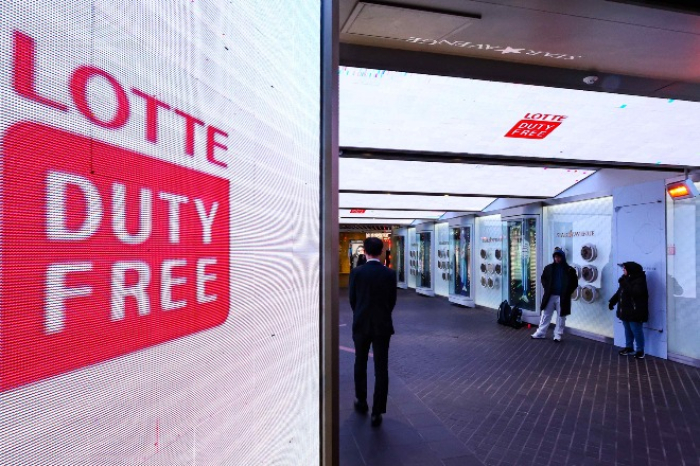
The South Korean travel retail industry, once considered the country’s golden goose, is forced to streamline operations given no signs of a dramatic sales recovery in the near term amid an absence of lavish-spending Chinese tourists in the country.
Korean duty-free shop operators like Lotte and Shilla have shifted their focus to offshore duty-free operations but these are unlikely to offset their money-losing domestic businesses anytime soon.
According to the Korea Duty Free Shops Association on Tuesday, the country’s local travel retail revenue amounted to 13.76 trillion won ($10.3 billion) in 2023, down 22.7% from the prior year.
It hit about 25 trillion won in 2019 before the COVID-19 pandemic swept across the world and closed borders. Even in 2020, the first year of the pandemic, total sales topped 15 trillion won.
Worse yet, Shilla Duty Free, one of Korea’s top two travel retailers, logged an operating loss of 46 billion won in the second half of last year.
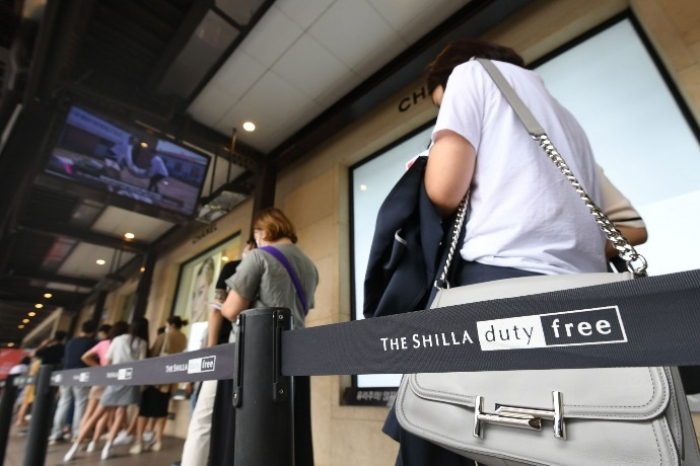
Its bigger rival Lotte Duty Free is also estimated to have logged an operating loss in the fourth quarter of last year, while another major Hyundai Department Store Duty Free is projected to post about a 10 billion won loss in the same quarter, according to the industry.
The outlook for their domestic operations is expected to remain grim this year, considering that Korea’s main gateway Incheon International Airport plans to cease discounts on airport duty-free branches’ rent fees and other benefits from the latter half of this year.
The main culprit of the Korean duty-free industry’s downfall is the lack of heavy-spending Chinese tourists in the country despite the lifting of the Chinese government’s ban on group tours to Korea in August last year.
China blocked its people’s group tours to Korea after Seoul deployed the US anti-missile Terminal High Altitude Area Defense (THAAD) system on its soil in 2017.
MISSING LAVISH SPENDERS
The Korean travel retail industry had high hopes for its revival with the end of both the pandemic and Beijing’s group travel ban and thus prepared for the return of Chinese travelers.
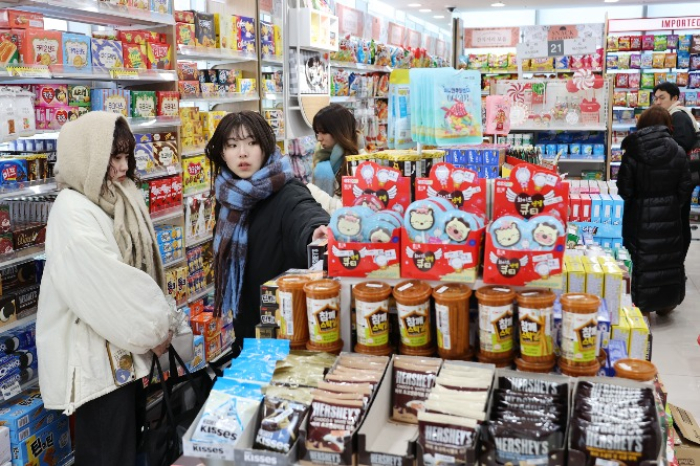
They returned but with their purse strings tightened, leaving Korean duty-free shops with stockpiled inventories.
Before the Thaad-caused diplomatic rows, Chinese travelers visited Korea in groups and spent a lot at Korean duty-free shops where they could find premium Korean beauty products and luxury fashion brand items.
But most returning Chinese tourists are now individual travelers and in terms of both money and time are looking for bang for their buck.
They prefer buying ordinary or cheap items at local big-box supermarkets or dollar shops and eating at everyday local Korean restaurants.
“Duty-free shops seem to have lost their appeal to them,” said an official from the local travel industry.
In 2019, the most popular items for Chinese travelers who accounted for about 80% to 90% of Korean travel retail shops’ entire sales were Korean cosmetics, which were considered premium items.
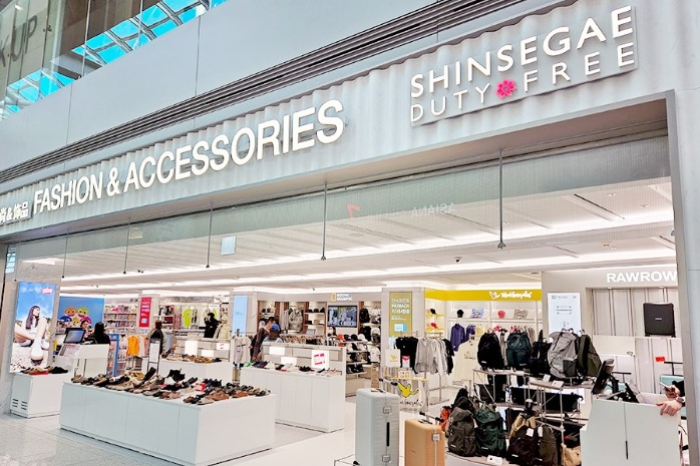
They were sought after the most by not only individual Chinese travelers but also Chinese shuttle traders, called Daigou, who travel to Korea in group tours to buy products en masse and resell them in China.
But Chinese demand for Korean cosmetics has also plunged since the pandemic as foreign big names such as L'Oréal and Lancôme have elbowed out premium Korean brands in China, while Chinese brands have rapidly ascended to catch up to budget Korean brands.
GOING GLOBAL
The gloomy situation at home has led Korean duty-free shop operators to look for a breakthrough further afield.
Last week, Lotte Duty Free opened its tax-exempt outlet at Changi Airport in Singapore, increasing the total number of its overseas duty-free operations to 14 in six countries.
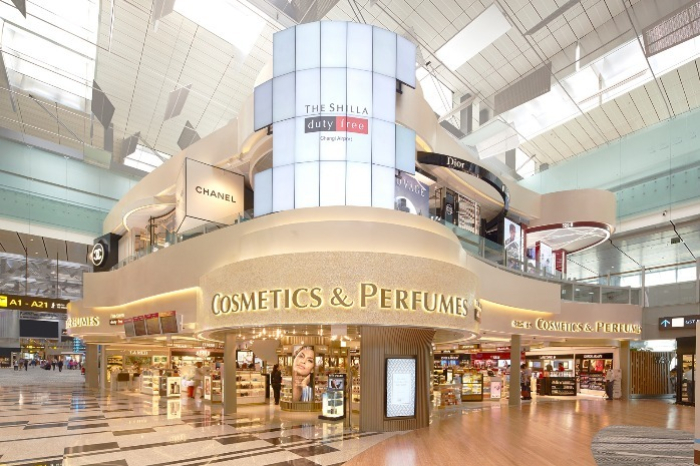
Shilla Duty Free, Hotel Shilla Co.'s unit, also operates travel retail shops at airports in Singapore, Hong Kong and Indonesia.
But their overseas duty-free retail operations are not handsome profit generators because of the higher concession fees required to win stiff competition for those shops than for city duty-free boutiques at home.
Unless their inland duty-free business in Korea revives, it would be hard for Korean travel retailers to see a turnaround soon, industry experts said.
Write to Jae-Kwang Ahn at ahnjk@hankyung.com
Sookyung Seo edited this article.
More to Read
-
 Travel & LeisureLotte Duty Free, Modetour to co-work for Vietnam tourism
Travel & LeisureLotte Duty Free, Modetour to co-work for Vietnam tourismJan 26, 2024 (Gmt+09:00)
1 Min read -
 RetailLotte Duty Free holds grand reopening ceremony at Changi Airport
RetailLotte Duty Free holds grand reopening ceremony at Changi AirportJan 21, 2024 (Gmt+09:00)
1 Min read -
 RetailShilla Duty Free partners with Line Pay to attract Asian tourists
RetailShilla Duty Free partners with Line Pay to attract Asian touristsNov 02, 2023 (Gmt+09:00)
1 Min read -

-
 RetailLotte Duty Free opens store at Australia's Melbourne Airport
RetailLotte Duty Free opens store at Australia's Melbourne AirportJul 13, 2023 (Gmt+09:00)
1 Min read -
 RetailKorean duty free shops take opposite paths to draw Chinese shoppers
RetailKorean duty free shops take opposite paths to draw Chinese shoppersDec 10, 2021 (Gmt+09:00)
3 Min read
Comment 0
LOG IN


